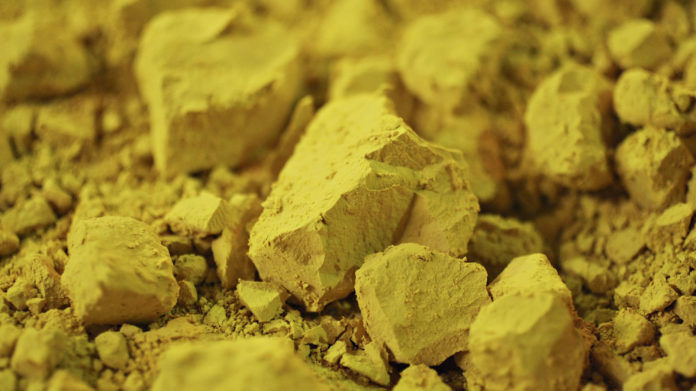
GOVIEX said an updated prefeasibility study of its Madaouela uranium prospect in Niger had delivered a leaner, more financeable project.
Initial capital on Madaouela has been estimated at $347.3m of which $150m to $180m could be debt-financed from a decision to begin production from open pit reserves and delay production from underground mining.
There was a reduction of $66m in capital costs in the first five years of production and payback by year five, according to the pre-feasibility study.
Uranium reserves have been calculated assuming a uranium oxide price of $55 per pound. The last feasibility study was conducted in 2015.
“Lower costs, lower technical risk, and financing potential are the main results from this study,” said Daniel Major, CEO of Goviex. Total operating costs in the first four years have been estimated at $18.26 per pound of uranium oxide, and $22.18/lb over life of mine.
A structural deficit in the uranium market called for new mines in the near-term, especially so that carbon-free nuclear power could be continued, Major said.
The project would begin with the development of the Miriam deposit which had an estimated 6.6 million tons of uranium in reserves. Total reserves, including uranium from underground, were estimated at about 21 million tons.
In terms of the capital cost, the majority of the $347.3m would be expended on the construction of processing facilities ($209m). A further $98m would be on pre-stripping and mining development costs.
Based on a uranium price of $55/lb over the life of mine, Madouela is forecast to produce $525m in free cash flow, including capital expenditure, and is forecast to produce an annual average of $70m in earnings before interest, tax, depreciation, and amortisation.











